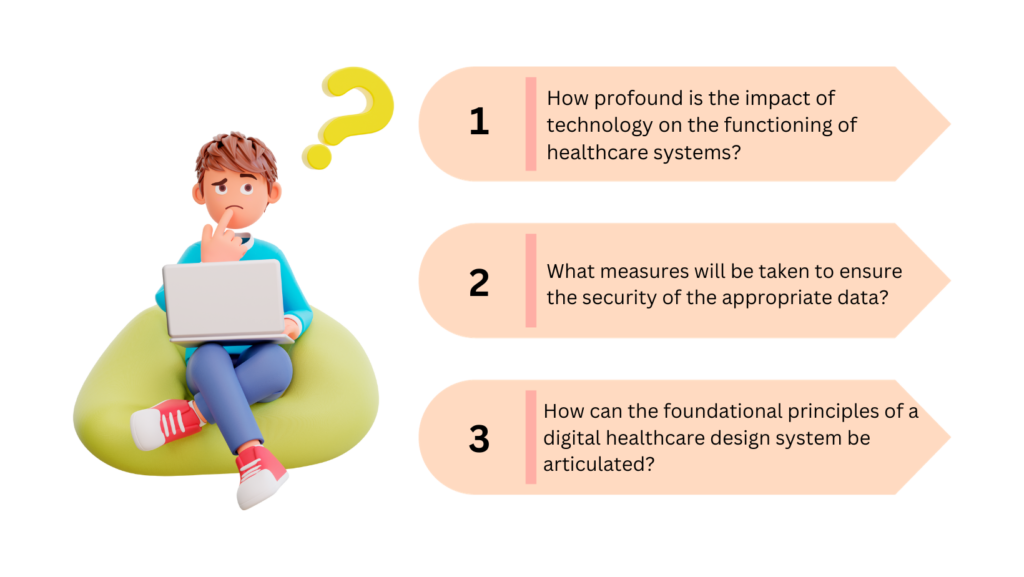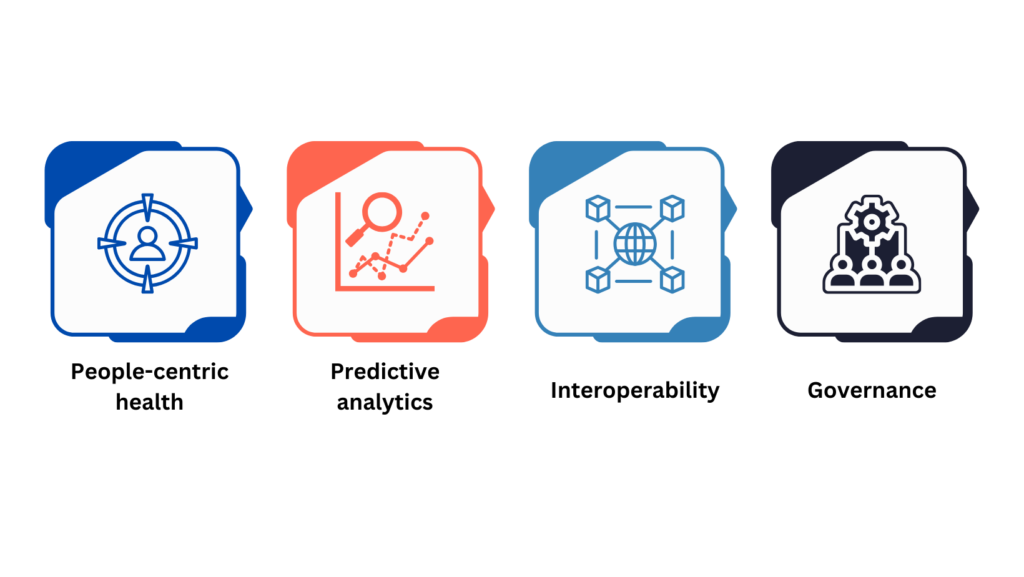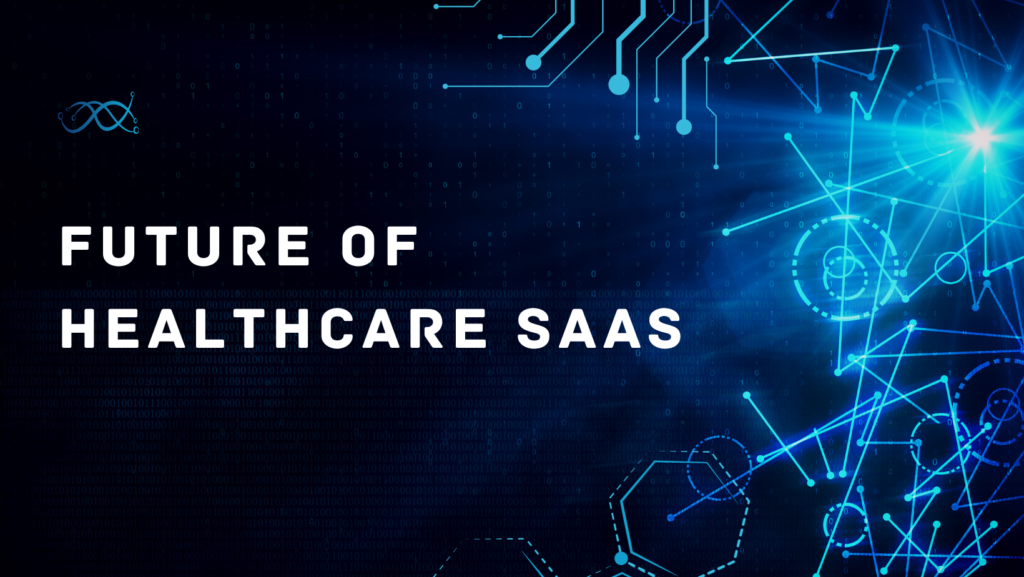Healthcare ecosystems and challenges may seem unique and local, but a closer examination reveals that, from a holistic perspective. The problems faced by the global healthcare system share more similarities than differences.
Around the world, healthcare systems grapple with challenges related to unequal access to healthcare, affordability issues, and disparate outcomes. And an increasing demand for services from remote populations.
The integration of readily available health information and the adoption of digital technologies can effectively address these challenges. It supports senior care, and population health goals, enhances customer experience, and offers insights for improving overall health.
Discussions on digital healthcare transformation, healthcare mobile apps for iOS and Android, and healthcare consumerism persist in various forums.
Only a limited number of institutions have successfully achieved high-quality care, improved patient outcomes, and increased operational efficiency.
This is frequently attributed to the fact that IT support efforts often extend beyond the conventional mission of e-health management systems, leading to ongoing challenges in integrating data due to persistent issues with legacy healthcare systems.
As health system leaders grapple with harnessing the full potential of cutting-edge technology in healthcare. So they must address several questions in their practice of developing healthcare applications.
Questions That Would Prepare Your Healthcare System to Become a Digital Health Leader

Question 1- How profound is the impact of technology on the functioning of healthcare system?
The foundation of any enduring and top-notch healthcare system relies on IT services and digital platforms. However, the healthcare ecosystem remains uncertain about the technology that would yield the greatest Advantages for patients and enhance return on investments.
Innovating Healthcare through Advanced Technologies and Mobile Applications
With experience in spearheading the digital transformations of over 50 solutions, we’ve gained valuable insights into the technologies that can fundamentally enhance the healthcare domain. Below are key combinations of technology and healthcare that are shaping the future, influencing both home health and traditional healthcare.
- Implementing Blockchain in Healthcare
- Applying Artificial Intelligence in Healthcare Industry
- Incorporating Machine Learning in Healthcare
- Utilizing IoT in the Healthcare Sector
- Integrating Wearables into Healthcare
- Deploying SaMD (Software as a Medical Device) in the Health Sector
While the technologies in healthcare continue to diversify, and the list of emerging technologies in the field constantly expands, the delivery methods remain relatively consistent. One pivotal mode that has facilitated the transition from Healthcare 1.0 to 3.0 is the use of mobile healthcare applications.
Digital health mobile apps empower individuals to effectively manage, monitor, and enhance their health, aligning with their wellness objectives and facilitating interaction with the healthcare system. Many of these applications, including those we have developed. This represents one of the strategies employed by leading entities in the healthcare industry to advance their digital initiatives.
Question 2- What measures will be taken to ensure the security of the appropriate data?
Due to the early stage of healthcare innovation, the prospect of healthcare applications seamlessly integrating with electronic patient records remains a distant goal. An alternative available to them, apart from collecting data independently, is associating the data with the claims information held by payors. While these contain less comprehensive details, the quantity is sufficient to gauge the effectiveness of healthcare mobile app development and associated reimbursements.
Establishing such a connection necessitates the development of an exceedingly secure IT platform designed for limited access to view claim records. Furthermore, even with the platform in Place, patients must explicitly grant permission regarding who can access and utilize their data.
Question 3- How can the foundational principles of a digital healthcare system design be articulated?
In constructing an open innovation platform, healthcare experts should concentrate on four fundamental principles that unite health and technology:
Privacy of Records
Ensuring the security of patient records must be a paramount concern. The platform should incorporate robust data protection measures to minimize the occurrence of data breaches and should empower individuals to specify who can access their records.
Regulatory Shifts
Despite progressing at a pace nearly parallel to the integration of technology in the medical domain, existing healthcare regulatory frameworks have not fully aligned with the digital realm. Only a handful of countries have established laws governing the privacy and utilization of patient data. Governments are still grappling with the question of whether healthcare app developers should adhere to the same compliance standards as those imposed on pharmaceutical companies.
Ownership of the Platform
The individual or entity overseeing the platform should possess an understanding of the critical nature of healthcare delivery and recognize the imperative of safeguarding sensitive information. We collaborate with healthcare organizations that have earned the trust of their patients, can engage with regulators, and are poised to advance payment innovation. Through our technical proficiency and their established credibility in the healthcare system, we synergize to integrate technology into healthcare, creating a platform that garners global trust.
The Four Pillars That Are Critical To Digital Health Transformation

People-centric health
For an extended period, healthcare systems have been characterized as provider-centric, with patients typically initiating contact with healthcare providers in nearly every instance.
As people expect personalized experiences in different sectors, they now seek similar services in healthcare—a trend known as healthcare consumerism.
This evolving scenario, healthcare providers or companies specializing in healthcare app development collaborate with patients to comprehend their health objectives. Subsequently, they tailor care delivery based on individual health goals and provide the necessary support to facilitate informed health decision-making.
Predictive analytics
Healthcare digitization focuses on predictive analytics and proactive measures to sustain the long-term health of populations. As analytical technologies and capabilities progress rapidly, now predictive analytic tools are capable of identifying patients at higher risk. Based on this information, Proactive decisions can be made to mitigate potential risks.
Interoperability
It forms the cornerstone of a successful digital transformation strategy Within every efficient health system.
A patient-centric healthcare system prioritizing well-being requires infrastructure supporting interoperability.
Interoperability guarantees that consumers and patients can access their data and contribute to records for reporting outcomes and monitoring progress. This also implies that the entire healthcare community should have access to healthcare services, navigation tools essential for supporting health decisions.
Governance
The increasing abundance of data assets and dependence on digital healthcare platforms are Presenting fresh challenges in data governance.
Data governance serves as a policy infrastructure that safeguards data assets against security and privacy threats. These policy frameworks are designed to provide enhanced transparency regarding safety outcomes and quality, supported by valid data. This enables health systems to discern which care options yield the most suitable outcomes.
Conclusion
Whether embraced or not, the healthcare domain is undergoing digital transformation. As per a Stanford Medicine report, the scale of digital health transactions has exceeded $23 million.
Only healthcare systems achieving robust returns on digital health investments will endure and emerge as leaders in today’s landscape. Contact us today to get started!



Pingback: Cloud Computing in Healthcare Industry - HealthSaaSPro